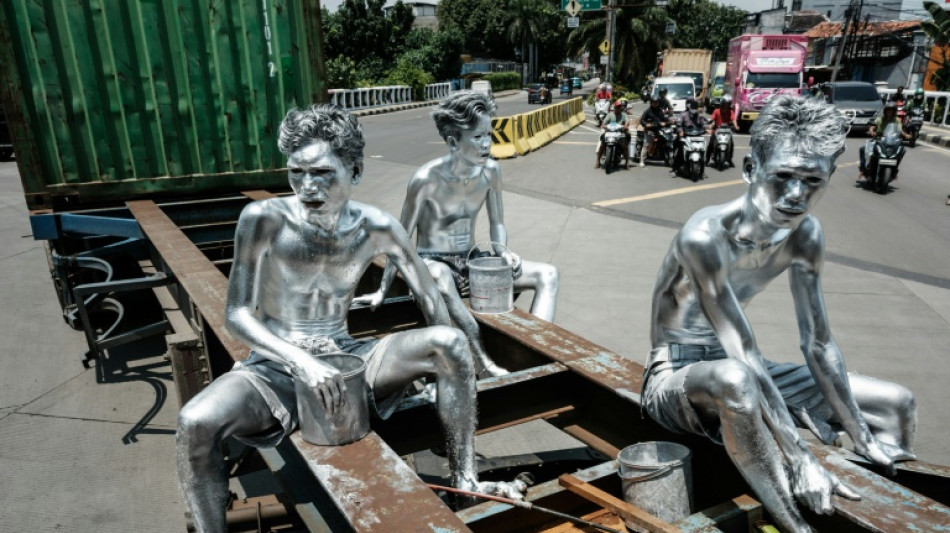
-
 Germany suspends arms exports to Israel for use in Gaza
Germany suspends arms exports to Israel for use in Gaza
-
Stocks waver, gold futures hit record on US tariff updates

-
 Guessand says he jumped at chance to join Aston Villa after sealing move
Guessand says he jumped at chance to join Aston Villa after sealing move
-
Israel to 'take control' of Gaza City, sparking wave of criticism
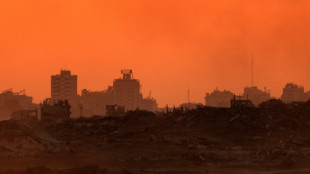
-
 Accumulating bitcoin a risky digital rush by companies?
Accumulating bitcoin a risky digital rush by companies?
-
Liverpool's Slot hints at fresh Isak bid despite 'attacking power'

-
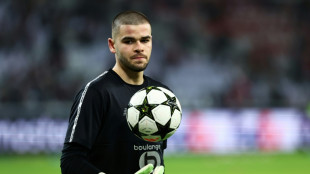 PSG to sign Lille goalkeeper Lucas Chevalier: source
PSG to sign Lille goalkeeper Lucas Chevalier: source
-
Oil industry presence surges at UN plastic talks: NGOs
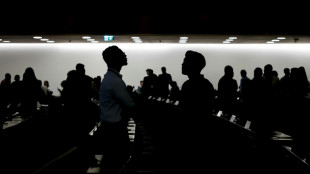
-
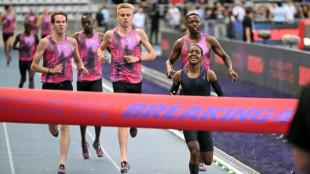 Kipyegon says a woman will run a sub-four minute mile
Kipyegon says a woman will run a sub-four minute mile
-
Tokyo soars on trade deal relief as most Asian markets limp into weekend

-
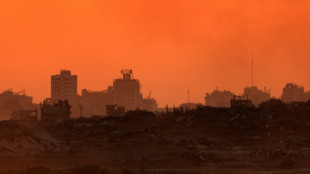 Israel to 'take control' of Gaza City after approving new war plan
Israel to 'take control' of Gaza City after approving new war plan
-
Australian A-League side Western United stripped of licence

-
 'Back home': family who fled front buried after Kyiv strike
'Back home': family who fled front buried after Kyiv strike
-
Indonesia cracks down on pirate protest flag
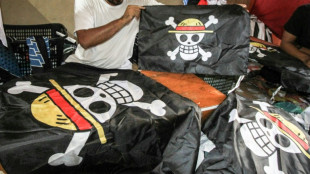
-
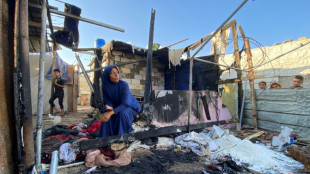 Israeli army will 'take control' of Gaza City: PM's office
Israeli army will 'take control' of Gaza City: PM's office
-
Australian mushroom murderer accused of poisoning husband

-
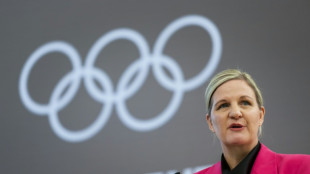 Coventry's mettle tested by Russian Olympic debate, say former IOC figures
Coventry's mettle tested by Russian Olympic debate, say former IOC figures
-
Library user borrows rare Chinese artwork, returns fakes: US officials
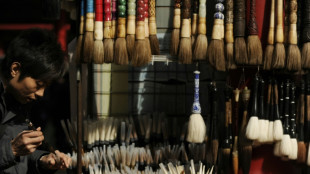
-
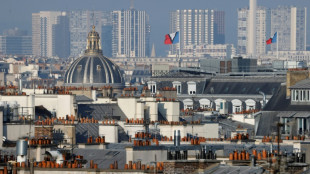 Parisians hot under the collar over A/C in apartments
Parisians hot under the collar over A/C in apartments
-
Crypto group reportedly says it planned sex toy tosses at WNBA games
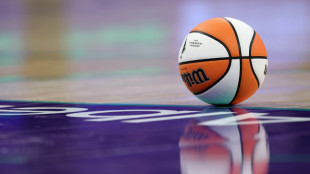
-
 American Shelton tops Khachanov to win first ATP Masters title in Toronto
American Shelton tops Khachanov to win first ATP Masters title in Toronto
-
Tokyo soars on trade deal relief as Asian markets limp into weekend

-
 New species teem in Cambodia's threatened karst
New species teem in Cambodia's threatened karst
-
Australian mushroom murderer accused of poisoning husband: police

-
 Solid gold, royal missives and Nobel noms: how to win Trump over
Solid gold, royal missives and Nobel noms: how to win Trump over
-
Canadian teen Mboko outlasts Osaka to win WTA Montreal crown

-
 Trump to host Armenia, Azerbaijan for historic 'Peace Signing'
Trump to host Armenia, Azerbaijan for historic 'Peace Signing'
-
Israeli airline's Paris offices daubed with red paint, slogans
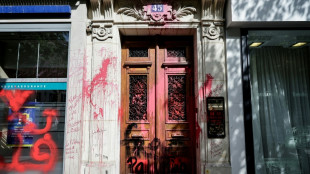
-
 US raises bounty on Venezuela's Maduro to $50 mn
US raises bounty on Venezuela's Maduro to $50 mn
-
Lebanon cabinet meets again on Hezbollah disarmament

-
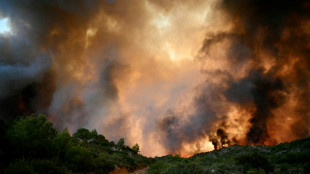 France's huge wildfire will burn for days: authorities
France's huge wildfire will burn for days: authorities
-
Bolivia right-wing presidential hopeful vows 'radical change'
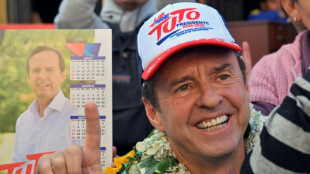
-
 Trump says would meet Putin without Zelensky sit-down
Trump says would meet Putin without Zelensky sit-down
-
Trump offers data to justify firing of labor stats chief

-
 Bhatia leads by one at PGA St. Jude, Scheffler five adrift
Bhatia leads by one at PGA St. Jude, Scheffler five adrift
-
Disney settles Trump-supporting 'Star Wars' actor lawsuit

-
 Trump moves to kill $7 billion in solar panel grants
Trump moves to kill $7 billion in solar panel grants
-
Venus Williams falls at first hurdle in Cincinnati

-
 Mixed day for global stocks as latest Trump levies take effect
Mixed day for global stocks as latest Trump levies take effect
-
SpaceX agrees to take Italian experiments to Mars
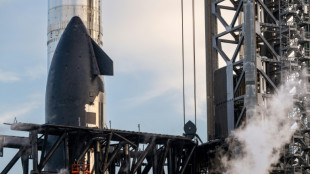
-
 US judge orders temporary halt to new 'Alligator Alcatraz' construction
US judge orders temporary halt to new 'Alligator Alcatraz' construction
-
US uses war rhetoric, Superman to recruit for migrant crackdown

-
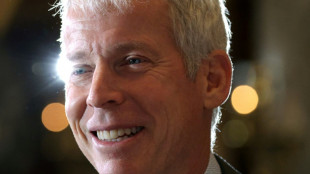 US to rewrite its past national climate reports
US to rewrite its past national climate reports
-
U can't pay this: MC Hammer sued over delinquent car loan

-
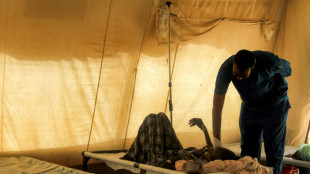 WHO says nearly 100,000 struck with cholera in Sudan
WHO says nearly 100,000 struck with cholera in Sudan
-
Huge wildfire in southern France now under control
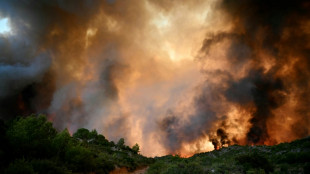
-
 Kane scores as Bayern thump Spurs in pre-season friendly
Kane scores as Bayern thump Spurs in pre-season friendly
-
France strikes down return of banned bee-killing pesticide
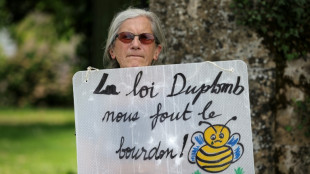
-
 Canada sends troops to eastern province as fire damage grows
Canada sends troops to eastern province as fire damage grows
-
OpenAI releases ChatGPT-5 as AI race accelerates

| RBGPF | -5.79% | 71.84 | $ | |
| CMSC | 0.04% | 22.96 | $ | |
| SCU | 0% | 12.72 | $ | |
| NGG | -0.31% | 72.08 | $ | |
| RYCEF | -0.42% | 14.44 | $ | |
| BTI | 0.51% | 56.69 | $ | |
| SCS | 0.06% | 16 | $ | |
| RIO | 1.12% | 60.77 | $ | |
| BCC | 0.32% | 83.19 | $ | |
| GSK | 2.21% | 37.58 | $ | |
| BCE | 2.23% | 23.78 | $ | |
| RELX | 1.03% | 49.32 | $ | |
| VOD | -0.36% | 11.26 | $ | |
| CMSD | -0.09% | 23.52 | $ | |
| JRI | 0.52% | 13.41 | $ | |
| AZN | 1.3% | 74.57 | $ | |
| BP | 0.91% | 34.19 | $ |

Indonesia's silvermen beg to make ends meet
On a rainy day in Indonesia's capital Jakarta, three men coated in metallic paint known as the "manusia silver", or silvermen, brave the elements at an intersection near a mall to ask drivers for change.
It is an arresting act that comes with health risks, one some young Indonesians feel is necessary to make ends meet as the cost of living worsens and jobs dwindle after the Covid pandemic.
"I'm ashamed to earn money like this. I want to find a real, more dignified job," said Ari Munandar, 25.
"But the embarrassment disappears when you remember that your daughter and your wife are at home."
Barefoot, dressed only in shorts and daubed head to toe by the irritating paint, Ari, his brother Keris and their friend Riyan Ahmad Fazriyansah each take a lane in the road.
When the cars come to a stop they strike robotic poses in front of the drivers.
"Good afternoon, have a nice drive," says Ari.
The poses have little meaning other than to attract cash.
"I do them because one day I saw a friend earn more by doing them," he said, moving between cars, holding out a bucket for donations.
On a good day they can pocket up to 200,000 rupiah ($12), but typically earn around 120,000.
That's much less than Jakarta's monthly minimum wage of five million rupiah and barely enough to cover daily expenses.
"I'm not going to eat lunch, just drink and smoke," said Ari.
Every penny counts in a country where prices have risen steadily in recent years.
A kilogram (two pounds) of rice, the archipelago's main staple, jumped by 27 percent between 2015 and 2025, according to statistics agency data.
And behind the paint, the friends are clearly undernourished.
None are taller than 172 centimetres (five feet eight inches) nor weigh more than 55 kilograms.
- 'Stings my eyes' -
A lack of employment opportunity is the main cause of young men and women taking to the streets, they say.
"Since I was made redundant in 2019 I've been begging," said Ari.
"Before that, I worked cleaning toilets."
According to government data, the number of people living below the poverty line in metropolitan Jakarta -- a megalopolis of 11 million people -- was up from 362,000 in 2019 to 449,000 as of September 2024.
"Many young people with few qualifications between the ages of 20 and 40 have found themselves unemployed," said Bhima Yudistira, executive director of the Center of Economic and Law Studies.
"Even though there is no national count, there has been a huge rise in begging in Jakarta after the pandemic of 2021."
After five hours at the intersection, the group returns home by hitchhiking a ride from a tuk-tuk.
The three pile into the back, counting their meagre earnings and lighting a cigarette to share.
Once dropped off, they walk by a polluted river and across a railway line to their Jakarta slum.
Far from the capital's high-rises, children play near the tracks to the rhythm of the trains as Ari makes his way back to remove the silver.
The paint, similar to that used for screen-printing on fabric, is not easy to remove.
Squatting in front of a well and buckets filled with water, he splashes his body before scrubbing fiercely, his one-year-old daughter Arisya watching.
"At first the paint burned and I had a blister on my neck, but now it only stings my eyes," he said.
The shower reveals a new, younger man.
Once dry, he heads home to play with Arisya.
"As soon as I'm here I forget all the fatigue and the hardship," he says, smiling.
"But I hope she never does what I do."
D.Khalil--SF-PST
